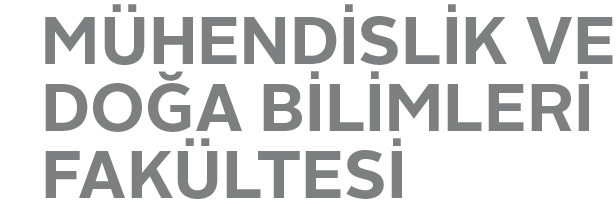Speaker: Erdem Kaya (Sabanci University)
Title: Incorporating Tangible Visual Analytics into the Decision-making Process
Speaker: Ali Can Atici (Sabanci University)
Title: Removing Profiling Phase of Cache-Timing Attacks
Speaker: Mehmet Cagri Calpur (Sabanci University)
Title: Towards Having a Cloud of Mobile Devices Specialized for Software Testing
Time: 13:40 -- 14:30
Place: FENS L027
Abstract:
Large-scale use of office tools and statistical analysis applications indicates that they have sufficed well for some of the
everyday tasks in our work cycles such as analysis, presentation, reporting, and decision-making. Nevertheless, they were
designed in an era when the business data was not ”big” and complex enough. Ever growing avalanche of the data that we collect for our businesses compels us to find new means to understand, share, and report the underlying ideas, and to make decisions for the future. We implemented a tabletop hybrid visual analytics system comprised of projection and physical visualization with the aim of supporting these tasks better by making the data physically available. We conducted a case study with an analysis team of a nationwide bank and made a series of observations and interviews during their data analysis and decision-making sessions. Our study revealed that the hybrid visual analytics system approach promotes idea sharing and contribution of all members of the group during the presentation sessions. It also seems to change the common one-way structure of the communication in the presentation sessions into some other structure that encourages everyone to take the floor.
Bio:
-------
Speaker: Ali Can Atici (Sabanci University)
Title: Removing Profiling Phase of Cache-Timing Attacks
Abstract:
Theoretically secure cryptographic algorithms can be vulnerable to attacks due to their implementation flaws, which disclose
side-channel information about the secret key. Bernstein's attack is a well known cache-timing attack which uses execution time
as the side-channel. The major drawback of this attack is that it needs an identical target machine to perform its profiling phase
where the attacker models the cache timing-behavior of the target machine. This assumption makes the attack unrealistic in many circumstances. In this work, we present an effective method to eliminate the profiling phase. We propose a methodology to model the cache timing-behavior of the target machine by trying hypothetical cache timing-behaviors exhaustively. To test the validity of the proposed method, we performed the Bernstein attack and showed that, the non-profiled Bernstein attack has an equivalent performance compared to the original attack which uses a profiling phase, and it even performs better in some of the cases.
Bio:
Title: Towards Having a Cloud of Mobile Devices Specialized for Software Testing
Mobile platforms are becoming the predominant computing environments. The widespread usage in consumer and enterprise mobile devices and operating systems increases the severity of the problem of handling software defects. Mobile devices come in various operating systems, sizes, computing powers, hardware settings and have many areas of use. This is commonly known as the “fragmentation problem”. Software developers typically struggle to provide inclusive support for this diversity, unless extensive budgets are spent for procuring required hardware. The fragmentation problem is but one side of the problem at hand. The mobile device, its operating system, and the related programming APIs are often relatively new and untested. The working mechanics of the complete system is very complex. This aspect of mobile platforms increases the need for domain expertise and knowledge of many testing frameworks.
Our research focuses on building a novel cloud testing platform specialized for software testing. The state of the art commercial and academic cloud testing services have been dealing with static code analysis and test case execution on the cloud. Our novel approach aims to perform dynamic analysis on mobile application binaries, generate the model of the application, its test cases and test input sets on the run. Domain information generated via dynamic analysis and utilization of combinatorial interaction testing for test case and input set analysis is used for improving the systems coverage capability. The system will be a self learning system in the sense that the lessons learned from testing one application will be used to test another application.
Bio:
Mehmet Çağrı Çalpur is a Ph.D. student in Computer Science and Engineering Program in Sabancı University. He is a member of SUSOFT: Software Engineering Research Group. He received his M.S. degree in Computer Science from Sabancı University and his B.S. degree in Computer Engineering from Bilkent University. He is interested in Software Engineering, Testing and Quality Assurance, Programming Languages, Mobile Operating Systems, Web & Mobile Services and Cloud Computing. His current research is about building a cloud infrastructure for mobile application testing, with self learning capabilities which utilizes dynamic analysis of mobile applications and test case generation/execution.

